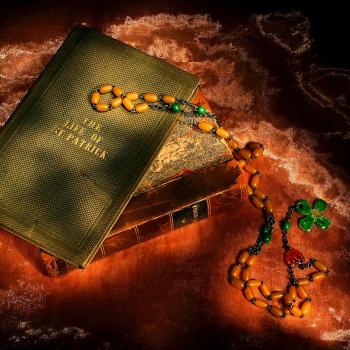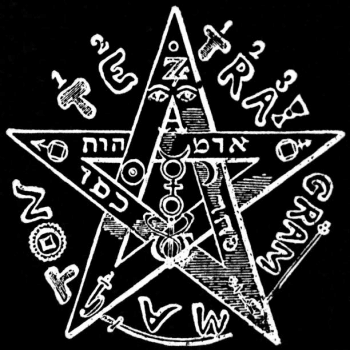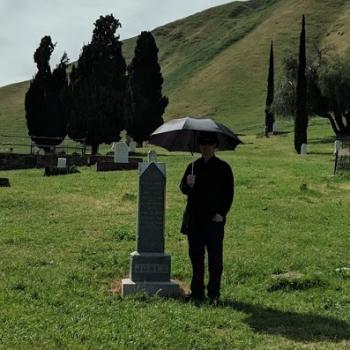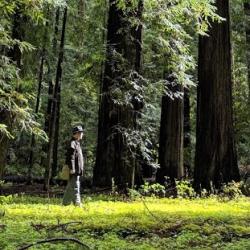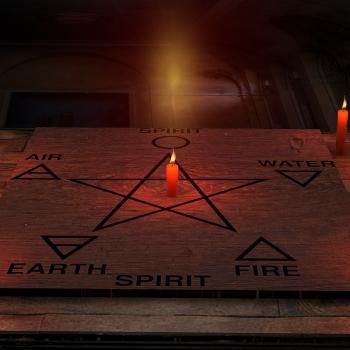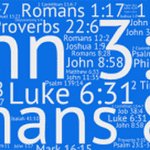I was talking with a friend the other day (he’s a wizard, mind you), and he told me a story about when he was much younger. One time when he was getting sick with a cold, he did a spell to boost his immune system. The next day, his cold worsened. His symptoms became terrible. He thought the spell had backfired.
My friend wondered what had happened. And then he did some research into the immune system and discovered that the spell had worked exactly as designed.
The problem wasn’t his magic; the man is a fine magician. The problem was that he didn’t have sufficient medical knowledge. Boosting someone’s immune responses won’t make them feel better. It will actually make their cold symptoms worse.

When we recite the old saw “knowledge is power” we sometimes forget the less-well-known-but-equally-important old saw, “Expertise does not cross fields. Experts often do.”
The cure to the problem of expertise isn’t actually being an expert in everything. It’s long, hard, practical experience – the kind of experience that no one gets until they start trying to make things happen.
“Street magic” is practical magic. It’s the kind of magic that allows us to solve everyday problems. From sensing danger before it happens, to finding your missing car keys, to navigating traffic, it’s magic that makes life better. It’s the practical side of being a practitioner.
But street magic isn’t just about the immediate end. If we do it right, every time we use a bit of magic to function in the world, we integrate ourselves – mind, body, and spirit – just a little bit more. Practical experience (both successes and failures) chips away at every assumption we carry with us. In time, a deeper truth is revealed.
In this blog, I’ve talked before about the importance of daily practice but maybe not as much as I should about daily application.
Street magic is the field of training. We do magic, see the results, adjust what we’re doing, try it again. We get an intuition and neither believe nor disbelieve, but instead check the data. It’s not enough to believe. We must know. To train ourselves, we must steal a line from Ronald Regan: “Trust, but verify.”
The Pitfalls of Theory
In recent years in magical circles, there’s been a false dichotomy growing up between the theoretical and the practical. The trend has been against magic theory – but most proponents on both sides of the debate don’t actually understand what theory is. Each side sneers at the other, but neither knows that they’ve lost the plot.
Odd as it might sound from the inside, there’s a seed (and sometimes a tree!) of anti-intellectualism to be found in magical circles. This is a reflection of growing sentiment found throughout Western culture.(1)
“Practical” magicians generally absorb the meaning of “practical” from culture – robbing magic from having any deeper meaning or spurring a wider view of the world. When we limit the purpose of magic to getting us what we want, we tie ourselves to a model of the self, and magic, that limits growth and change.

On the other side of this debate is the straw man of the armchair theorist. Oh, armchair magicians exist, but they’re not the real theorists.
I’ll say it again: the “armchair” magician is not a theorist – the armchair magician is a consumer. Talking about theory is what people do at cocktail parties, and is often more about measuring intellectual phalluses (or is it phalli? – let’s measure and find out).
Being a theorist means finding theories, building models, testing them, applying the results, and revising the models against feedback. “Theory” is careful experimentation, “science” in the original sense. Only after all that is done should we have any interest in whipping them out at parties. As long as theory is a measuring of opinions and egos, magical debate is just office politics in a job that pays poorly and doesn’t come with dental.
At the heart of it, the practical magician isn’t against “theory” – just against replacing training with debate. And as it turns out, I’m against that, too. So how do we dig ourselves out of this hole?
Magical Research and “The Freud Mistake”
A lot of the magic theory floating around, from theology to ritual to spellwork, suffers from “The Freud Mistake.” I’m not referring to a preoccupation with sex, cigars, or traumas from childhood. I’m talking about a problem with how we apply the scientific method to “soft” topics.
When we think of Dr. Sigmund Freud at all, we think of maybe a few basic ideas, like the subconscious, the Id, Ego, and Super-Ego, or his stages of development. Further, we realize that mostly people would rather be talking about sex. And when they don’t think they’re talking about sex, they’re still talking about it.
I want to take a deeper dive for a minute, but not on anything that Freud said that was right or wrong. I want to look at a common research flaw that I call “The Freud Mistake.” It isn’t just his – it’s a mistake that we all make in everyday life.
You see, Dr. Freud came up with a long, complex explanation of the nature of the self, and then (based upon that model) a long explanation of why talk therapy works. And then, when talk therapy turned out to work, this became “proof” of the theory underlying it. It wasn’t genius; it was bad science.
Most people already know that when someone’s upset, talking about whatever’s bothering them helps them feel better. Middle-class Victorians forced by society to act terribly reserved felt better when they could express themselves in strict and protected confidence once in a while. Good job, Freud.

Reconciling Freud’s Mistake
The “Freud Mistake” isn’t about making poor connections when we think things through. It’s about making the right connections, but misunderstanding cause and effect.
We all create models that explain our data. Our models are based on what we already know – our assumptions about how everything works. Just because the data is a good fit, that doesn’t mean that our underlying assumptions are correct. It would often be better to refer to our theories as “reconciliations.” That is, our “theories” are simply ways that we reconcile what we think about the world with the evidence out there.
A lot of theories are, in the end, reconciliations between what we think we know and the data out there. This is nowhere more true than in the realm of spiritual exploration. Mostly, our theories of the universe, and of cause and effect, don’t so much explain the data as realign the data with what we think already know.
As far as they go, such practices are useful. Such reconciliation is important. It is a necessary part of study. It is not, however, breaking new ground. Breaking new ground means not just knowing things, but knowing what we know. Further, it means knowing and being able to articulate how we know.
Street Magic
It has long (a century or so) been a tradition in Western Esoteric Traditions that the “goal” of magical training is self-development on a spiritual level. Such practices are a simple growing of the self.
The tendency of these practices toward navel gazing and ways to bolster the ego is clear. But the solution is not to throw out theory.
Practical magic can be about more than just getting what we want. Practical magic as part of a regimen of study is a path to a deeper self.
ProTip: Learning magic isn’t hard, it’s just hard work. There are four components to learning a new magical skill: Research, Study, Training, and Rest. We need to learn how to do something, practice doing it, apply it, and then let it go.
If we’re not applying our magical skills to daily life, then magic will never be anything more than a (probably not-so-cool) hobby. That being said, I always recommend starting small and sussing out the pitfalls when your neck isn’t on the line.
While it may or may not be readily apparent to the practitioner, from a spiritual perspective much of magical training focuses on communicating with, developing control of, and strengthening your own spirit. It is only through this special kind of self-development and self-control that we can rise to become more than people with a few magic tricks, but rather step into a new world. I’ll see you there.
—-
(1) While many New Age beliefs are easy targets for such critiques, it’s a problem that’s rampant in large swathes of Western culture. From anti-vaxxers to atheistic (rather than agnostic) scientists, there’s a failure to understand the limits of knowledge. I suppose that’s a blog for another day.





